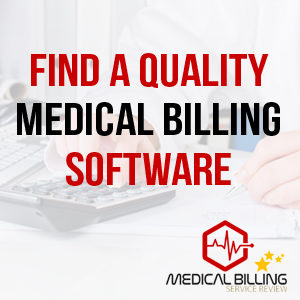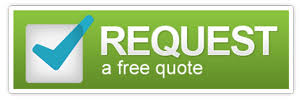
Top 5 Challenges in Medical Billing and How to Overcome Them
Medical billing is a critical component of healthcare administration that ensures healthcare providers are reimbursed for the services they deliver. However, the process can be fraught with complexities that lead to delays and errors. Understanding these challenges and knowing how to overcome them is crucial for streamlining billing processes, enhancing revenue flow, and minimizing stress for staff. Here, we explore the top five challenges in medical billing and offer practical solutions to address them.
1. Billing Errors
Challenge: Billing errors are a common issue in medical billing that can arise from misentered data, incorrect patient information, coding mistakes, or outdated billing software. These errors can lead to claim rejections or denials, resulting in delays in payments.
Solution: To minimize billing errors, ensure thorough training for billing staff on the latest billing software and coding updates. Implementing automated billing systems that feature error-checking algorithms can significantly reduce the incidence of mistakes. Regular audits and quality checks are also essential to catch and correct errors before claims are submitted.
2. Complexity of Insurance Policies
Challenge: Insurance policies and coverage can vary greatly between patients, making it difficult to manage and apply the correct charges. This complexity can lead to incorrect billing and denied claims if not handled correctly.
Solution: Staying informed about the different insurance plans and keeping up-to-date with changes in policy coverage is crucial. Providing continuous training for your billing staff on new insurance regulations and policies will help. Additionally, utilizing advanced billing software that can automatically update and store insurance policy data can streamline the process.

3. Changes in Healthcare Regulations
Challenge: Healthcare regulations, including those related to billing, coding, and compliance, are continually changing. Keeping up with these changes is essential but can be overwhelming for medical billing departments.
Solution: To effectively manage regulatory changes, subscribe to industry publications, attend relevant webinars and training sessions, and join professional groups. Establishing a compliance program within your practice that regularly reviews and updates billing practices according to new regulations can also protect against compliance risks.
4. Patient Collections
Challenge: Collecting payments from patients, especially those with high deductible plans or co-pays, can be challenging. Patients may be unaware of their payment responsibilities or unable to pay, which affects the revenue cycle.
Solution: Clear communication with patients about their payment responsibilities at the time of service is vital. Offering multiple payment options, including online payment systems, can improve the collection process. Additionally, setting up payment plans for patients who need them can help manage collections more effectively.
5. Inadequate Follow-up on Denied Claims
Challenge: Claims are often denied by insurance companies due to various reasons, including billing errors, lack of necessary documentation, or non-adherence to policies. Without adequate follow-up, these denials can lead to lost revenue.
Solution: Establish a dedicated denial management team within your billing department to handle and follow up on denied claims promptly. Training this team to understand common denial reasons and to rectify and resubmit claims efficiently is crucial. Regular analysis of denial patterns can also help identify and address systemic issues within the billing process.
Do You Need Medical Billing Services?
While the previous sections have highlighted specific challenges in medical billing and practical solutions to address them, the decision to use professional medical billing services shouldn’t solely depend on facing these issues. In fact, partnering with a medical billing service can be beneficial for numerous reasons, even if your practice isn’t currently experiencing significant billing problems. Here’s why considering a medical billing service is a wise choice regardless of your current situation.

Enhanced Focus on Patient Care
Medical practices, especially smaller ones, often find that billing tasks consume a substantial amount of time that could otherwise be dedicated to patient care. Outsourcing these responsibilities to a specialized service allows healthcare providers to refocus on what they do best—caring for patients. Medical billing services take over the administrative burden of billing, from coding claims to managing denials and follow-ups. This transition not only frees up valuable time but also reduces the stress on your clinical staff, potentially improving job satisfaction and patient interactions.
Access to Expertise and Compliance
Medical billing requires specific expertise, particularly in understanding complex billing codes and staying compliant with changing healthcare regulations. Medical billing companies are experts in these areas, significantly reducing the likelihood of costly errors or compliance issues. These services employ trained professionals who are up-to-date on the latest in healthcare legislation and billing practices. They ensure that claims are accurately coded and submitted in compliance with federal and state regulations, thereby minimizing denials and delays in payments.
Cost Efficiency
Running an in-house billing department can be expensive, especially considering salaries, benefits, training, and purchasing, maintaining, or updating billing software. Medical billing services can often provide these functions more cost-effectively due to their scale and efficiency. By spreading their infrastructure and technology costs across multiple clients, billing services can operate at a lower cost per client. Additionally, by improving the rate of successful claims submissions and reducing denials, these services can increase a practice’s revenue more effectively than an in-house team might manage.
Scalability
As your practice grows, its billing processes must scale accordingly. Handling increased billing in-house can be challenging without hiring more staff or investing in new technologies. Medical billing services are equipped to handle large volumes of billing tasks and can easily scale up their operations to match the growth of your practice. This flexibility allows you to expand without the logistical and financial headaches associated with scaling an internal department.

Top Medical Billing Tips in 2024
- Improved Billing Consistency and Reliability
Consistency in billing is key to maintaining a steady cash flow and minimizing fluctuations in revenue. Professional billing services are dedicated to maintaining the highest levels of accuracy and consistency in every aspect of the billing process. With dedicated teams and advanced software systems, medical billing services can ensure that every claim is processed systematically and monitored continuously, reducing the incidence of errors and ensuring a consistent turnaround time for payments.
Even if your medical practice is not currently experiencing severe billing challenges, the advantages of employing a medical billing service are significant. From freeing up resources to focus on patient care to improving financial performance through expert billing management, the benefits extend well beyond solving immediate problems. Consider how such a service might not only alleviate hidden inefficiencies but also enhance the overall effectiveness and profitability of your practice.
- Enhancing Training and Development for Billing Staff
The effectiveness of medical billing is heavily dependent on the knowledge and skills of the billing staff. Inadequate training can lead to errors, inefficiencies, and employee turnover, which can destabilize the billing process and impact the financial health of a healthcare practice. Investing in comprehensive training programs is crucial. These programs should not only cover the basics of medical billing and coding but also include ongoing education on the latest industry changes and technology updates. Consider establishing a mentorship system where more experienced staff can guide newer employees, enhancing knowledge transfer and retention. Additionally, providing access to certification programs in medical billing and coding can further professionalize the staff and improve billing accuracy.

- Implementing Advanced Billing Technologies
Outdated billing systems can slow down the billing process, increase the risk of errors, and make it difficult to adapt to new billing codes and regulations. Healthcare practices should consider investing in advanced medical billing software that integrates electronic health records (EHR) and billing systems. These integrated systems can automate many aspects of billing, from entering patient data to coding claims correctly. Features like real-time eligibility verification, electronic claim submissions, and automated follow-ups on unpaid claims can significantly improve efficiency and reduce the administrative burden on staff.
- Streamlining Patient Intake Processes
The patient intake process can often be a source of billing errors if information is collected inaccurately or incompletely. Miscommunications during this stage can lead to incorrect billing information being entered into the system. Streamlining the patient intake process with digital tools can greatly enhance accuracy. Implement electronic patient intake forms that patients can complete on their own devices, ensuring all necessary information is captured correctly at the source. These forms can be integrated directly into the billing system, reducing the need for data re-entry and the associated potential for errors.
- Cultivating a Culture of Accuracy and Accountability
Maintaining a high level of accuracy and accountability in medical billing requires a workplace culture that prioritizes these values. Without a strong culture, the billing process can suffer, leading to errors and inefficiencies. Create a positive work environment that emphasizes the importance of accuracy and attention to detail. Recognize and reward staff for high-quality work and successful resolution of billing issues. Regularly review performance and provide constructive feedback and training to help staff improve. Establishing clear policies and expectations regarding accuracy and following up on errors can help in fostering a culture of accountability.
Overcoming the challenges in medical billing requires a combination of skilled personnel, advanced technology, and proactive management. By addressing these common issues, healthcare providers can streamline their billing processes, reduce errors, and maintain a steady flow of revenue. Remember, the goal of effective medical billing is not just to ensure financial health for the practice but also to contribute to the overall satisfaction of patients by making billing transactions as smooth and transparent as possible.
Author: Mike Cynar
Mike Cynar brings buyers and sellers together by producing reviews and creating non biased webpages allowing users to share their experiences on various products and services. He and his staff write informative articles related to the medical field, legal, and other small business industries.

Leave a Reply